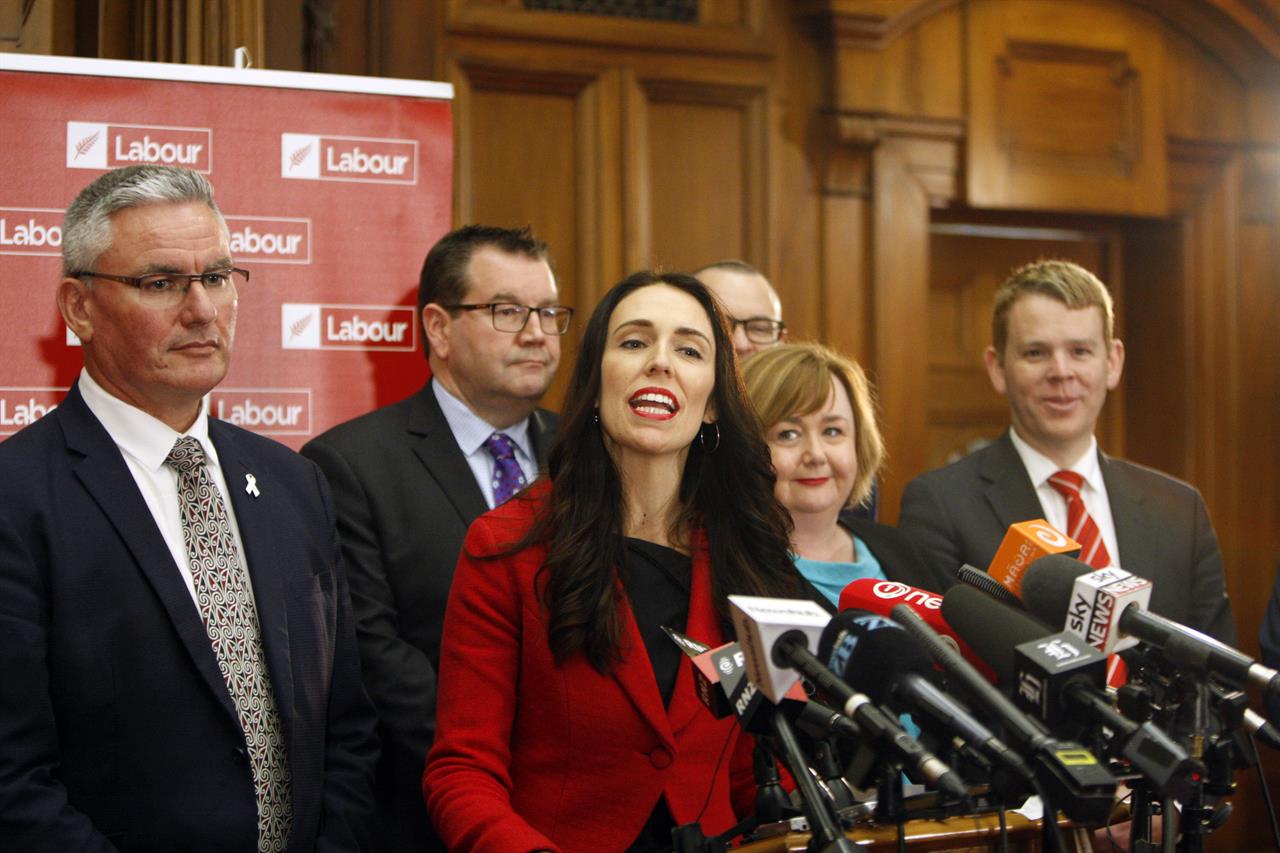They say a chain is only as good as its weakest link. The forces that be will test the durability and the resilience of the chain and its ability to survive will depend on the susceptibility of its most vulnerable part.
The age old proverb is applied figuratively to organizations and corporations, metaphorically saying that the least efficient or “weakest” member of the team will be most likely liable for its potential downfall. If the New Zealand Labour Party would do a stock-take of their caucus in hopes of identifying their weakest link, they would find themselves stumped to give a clear answer – after the course of events in their first month of government, there are just too many candidates.
In the past week, the mainstream media have attempted to answer that question for them. Multiple members of the Labour front-bench were pinpointed to be the “weakest link”, the fact that all guesses could have been argued to be correct is a testament to how weak the new government’s performance has been lately.

Given Prime Minister Jacinda Ardern’s absence in the Debating Chamber due to her engagements with the APEC and ASEAN Summits, she was fortunate not to cop most of the blame for her Party’s performance as Leader. Though, she had not been spared from criticism for her seemingly naive and inexperienced showing in the international scene.
Ardern bizarrely made a generous offer to Australia to house several hundred boat-people stranded in Manus Island, the move earned the furor of a large swathe of her supporters for prioritizing an issue that was deemed not to be directly relevant to New Zealand. She would be left red-faced after her offer was turned down by Australian Prime Minister Malcolm Turnbull, who was most likely doing his centre-right allies across the Tasman a favor.
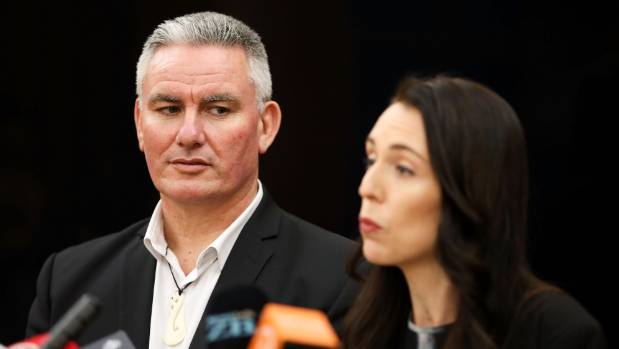
In the absence of the Prime Minister as well as her Deputy Prime Minister and Foreign Affairs Minister, the Rt. Hon. Winston Peters, her role fell into the hands of Labour’s Deputy Leader Kelvin Davis. His lack of preparation for the job really showed and was painfully exploited by the cunning National Party opposition who made mincemeat of his inexperience.
Davis was cited for his shaky performance during Question Time, appearing to have no concrete answers to the questions hurled at him by the likes of Simon Bridges and Steven Joyce. During a media interview on behalf of the Prime Minister, Labour’s Deputy Leader stuttered while explaining his Party’s debt reduction plan before finally capitulating by saying: “I’m sorry, I don’t know the answer to that”.
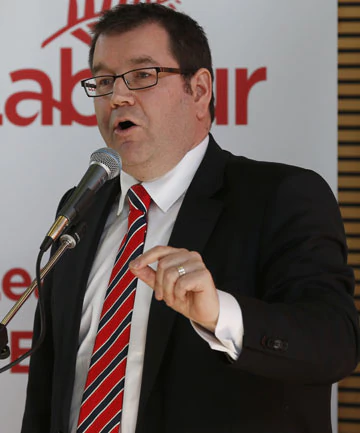
No blame should be spared for Finance Minister Grant Robertson either, one of the chief criticisms by the National Party against the new government is their supposedly opaque fiscal plan. The pressure to disprove that seems to be behind Robertson’s recent choice statements in the media recently, like his ominous warning about finding ‘unexpected budget challenges’ that the previous National government left behind.
Robertson failed to specify what those challenges are, but warned they could force the government to rethink its plans. Though the Finance Minister did reiterate that any potential changes would be in policy rather than spending, the wording of his statement allowed the mainstream media to spin it in such a way that he was giving himself permission to renege on the government’s key promises. An important element in being a good Minister is to be a good spokesperson for your Party on the portfolio given to you, in this instance Robertson failed to get his wording correct.
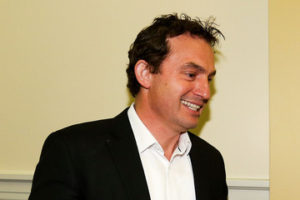
Yet that was far from being the blunder of the week, the Minister for Revenue – Stuart Nash – carelessly declared that his government would “absolutely” introduce GST on goods purchased online from foreign companies. Though he kept mum on the details on this proposed change when pressed further by RadionNZ, having to rely on his Finance Minister to answer questions from the media. Robertson then explained that the planned GST was still a work on progress and that Nash had jumped the gun. This prompted Opposition front-bencher Judith Collins, to attack the Revenue Minister’s “enthusiasm”.

Even Labour’s own “Mr. Fix-It”, Housing and Transport Minister Phil Twyford, was not without his own questionable moments. Despite prior concerns raised by the Reserve Bank on his Party’s “Kiwibuild” housing policy, to build 100,000 houses in a decade, the Minister doubles that number and declared his Party might build 2,000 houses per year instead. Twyford and the RBNZ would later clash on the numbers, with the latter stating that the plan is unachievable. He also announced plans to remove the urban development boundary, which the Labour Party criticized David Seymour and the ACT Party for advocating in the previous Parliament but are now proposing it themselves. The announcement did not go well with former Labour leader and now mayor of Auckland, Phil Goff. Two individuals who are affiliated to the same Party clashing is not a good look, and Twyford has himself to blame for announcing a Party policy which obviously did not go through all their networks.
In his role in the transport portfolio, Twyford did not win any praises by announcing an Auckland fuel tax that will be used to fund infrastructure. The move may be necessary, but again, just like Sir John Key who proved to be a very successful politician, a good Minister knows how to spin his message properly to the public.
Aside from housing, another major Labour Party platform pre-election was their staunch opposition to the TPPA. That stance seems to have softened during the APEC Summit, when a new agreement named the Comprehensive Progressive TPPA (CPTPPA) was put forward and was pursued by Prime Minister Ardern and her Trade Minister, Labour veteran MP David Parker. The latter had promised his Party’s base voters that the new arrangement has been well-vetted and is now different from its previous iteration, however critics of the TPP deal were unmoved and stated the new deal is no different from the old one.

Their firm commitment to re-entering Pike River mine was also a cornerstone promise for the Labour Party, but recently the Minister in-charge for re-entry – Andrew Little – stated that it would be a “dangerous task” and has clocked back the target deadline for manned re-entry from early 2018 to early 2019 instead. This is a big blow to the families who had pinned their hopes on the new government to finally achieve their desire to retrieve the bodies of their relatives.
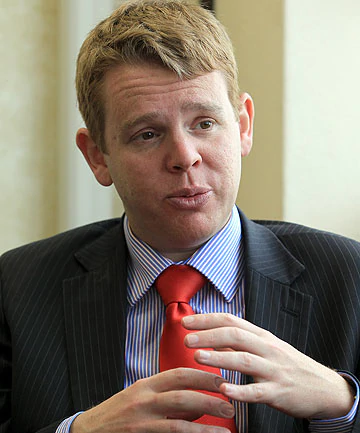
The new government has been in power for a month and yet most of their front-bench have faced defeats in some way. With Little, Parker and Nash having flip-flopped, Davis and Robertson appearing incompetent and the Prime Minister Ardern seen to have her priorities confused. Despite all that, the weakest link of the Labour Party would be none of those individuals listed so far – it arguably is Education Minister Chris Hipkins.
Aside from his education portfolio, Hipkins’ other role is Leader of the House. It was his fault why the new government had such a shambolic first day, when due to a lack of MPs they nearly failed to have Trevor Mallard elected as Speaker of the House. As Leader of the House, Hipkins was forced to approach his Opposition counterpart – Hon. Simon Bridges – to make a deal. In exchange for their support, National were given concessions to have more of their MPs on select committees – coercing Labour to go against their previous plan. The journalist Chris Trotter agreed that it was Hipkins’ naivety that costed Labour saying: “Hipkins made the mistake of believing that National would not stoop to turning the opening of Parliament into an ugly display of aggressive partisanship.”
In his education minister role, Hipkins was also not without errors. He previously stated on record that the new charter schools set to open in 2019 will not push through, only to backtrack on that statement and conceded that contracts signed by the previous government could not be ignored by the new government. It seemed he had not even talked to school sponsors before making his threatening announcement of stopping those schools from opening.
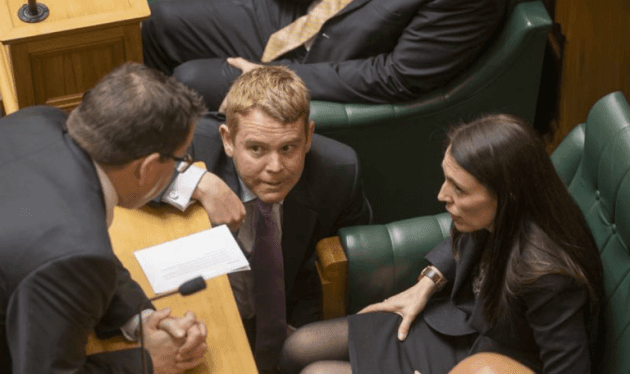
During Question Time in Parliament, Hipkins was quizzed by National’s tertiary education spokesperson Paul Goldsmith if whether Australian students studying in New Zealand would be eligible for Labour’s fees-free tertiary education policy which starts next year. He replied that under their policy, only those with a minimum residency of three years would qualify. That response contradicted a previous statement by the Prime Minister who said that Australian citizens would be eligible for the policy from the get-go. The tertiary education industry have also complained over the uncertainty surrounding Labour’s new policy, which prevents them from giving sufficient advice to their clients. That information would have come from the Education Ministry which Hipkins heads.
These are all very significant gaffes by the Minister for Education and Leader of the House, and it has only been a month. What makes it worse is that those errors could have been easily avoided with proper research and preparation, what Ministers are supposed to be good at doing. Surely someone so error-prone would not be entrusted with such big responsibilities?
Those mistakes are blood in the water for the sharks in Opposition, who will clearly be finding other ways to humiliate Hipkins in the next three years. Despite all their mistakes, the other Labour front-benchers do not have as frightening of a future to look forward to than the Leader of the House. Perhaps the Prime Minister should look to prevent future hits on her government by replacing him?
In a month full of errors which exposed the relative inexperience of the new government, mainstream media were quick to place the blame on Kelvin Davis or Grant Robertson for such a bad start. However, it is quite evident that the true weakest link for the Labour-led government is Chris Hipkins – and time will only tell when they will look to do something about him.

